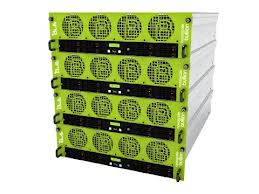
The Fastest Internet In The US – Google Fiberhood
September 17, 2012
You’ve Been Served: Top Web Servers of 2012
September 20, 2012The depletion of IPv4 web addresses have been a cause of concern since the late 1980’s.
The depletion of IPv4 web addresses have been a cause of concern since the late 1980’s. Without them our standard domain names would not be able to connect to to the internet. Following the dot com boom, the amount of assignable IPv4 addresses has rapidly depleted. To make matters worse, data centers have acquired existing IPv4 addresses for distribution to their customers.
As of September 14th, all further requests for IPv4 addresses have been suspended. A few lucky internet providers in Europe and the middle east have received the last block of IPv4 addresses that have not yet been spoken for. What does this mean for the rest of us? Where can businesses acquire unused IPv4 addresses? More importantly, what will happen if users make the switch to IPv6 network addresses if IP providers are not prepared. Check out this video and see what all the fuss is about:
IPv4 as a Black Market Commodity
ARIN-the American Registry of Internet Numbers came into existence in 1997. This organization has since been responsible for maintaining the registry of IPv4 and IPv6 network addresses as well as implementing any policies regarding their distribution. ARIN maintains that any business who wishes to acquire IPv4 addresses that are unclaimed or unspoken for has to submit a statement of intent.
Typically, larger operations are granted the privilege, though much debate has been raised over the way companies go about acquiring stale IPv4’s. A sort of black market may be emerging. Ironically, IPv6 infrastructure cannot operate without IPv4 addresses, and that is motivating a maverick like attitude when it comes to tracking down un-used IPv4’s. A recent move by Microsoft raised more than a few eyebrows.
Companies Like Microsoft Can Buy IPv4
IPv4 addresses are just numbers and have no intellectual property associated with them. The rules set fourth by ARIN state that businesses can only acquire IPv4 addresses when buying existing assets from a bankrupt company.
 Case in point was when Norton filed for bankruptcy back in 2011 hundreds of thousands of their IPv4 address went on the auction blocks. After a numerous amount of offers, Norton accepted an offer from Microsoft of $7.5 million in exchange for 666,624 IPv4 addresses.
Case in point was when Norton filed for bankruptcy back in 2011 hundreds of thousands of their IPv4 address went on the auction blocks. After a numerous amount of offers, Norton accepted an offer from Microsoft of $7.5 million in exchange for 666,624 IPv4 addresses.
Suddenly it’s the Wild Wild West again, yet nobody stopped the deal from going through. So where does that leave us? The internet powers that be don’t seem to have the legal power to prevent endangered IPv4 from entering the black market, though businesses that have the resources can and will get the IPv4’s they want. At $11 an IP that can turn into some big bucks for future mavericks.
To some, running out of IPv4’s is not that big of a deal. It’s like getting a new area code. In terms of current protocol standards, IPv4’s are still the standard for IP protocol and no one really wants to make the switch. Will the switch to IPv6 spark another y2k like scare? Probably not, but the fact remains: IPv4’s are officially depleted, scarce and a valuable asset although they were never intended to be. If you want more IPv4’s for yourself then you’re going to have to hunt them down, wild-west style.

4 Comments
The IPv4 Transfer market should not be characterized as a black market.
In fact, policy exists in both ARIN and APNIC for the provision of sales of IPv4 address space. As the Nortel case demonstrated, the idea of transferring unused address space for money is neither illegal nor contrary to policy.
Thanks for your comment Mike. I stand corrected. IpV4 seems to be a hot topic lately as everyone is seemingly fighting for every last one of them. I’m interested to see how everyone will make the shift toward IPv6 in the coming years. Do you think the industry should be more focused on IPv6 instead? Very informative website BTW.
Hi James,
The European RIR, RIPE, also allows sales of IPv4 addresses within the RIPE region, but there is a policy proposal in the comments phase there which would add Europe to the existing “free trade” regions of ARIN and APNIC. If this proposal passes, IPv4 addresses would be transferable anywhere in the world except Latin America and Africa.
Why wouldn't they be transferable in Latin America & African countries. I suppose the policy prohibits the transfer of IPs to companies based in those select countries. I was doing some additional research and found the average cost of a single IPv4 is upwards to $10. That sounds like a lot?